Intent
At Elmwood, the intent of our music curriculum is for everyone to be able to understand, appreciate and create music from a range of times, cultures, countries and genres. We aim to encourage a love of music across the school and believe that everyone has the right to learn music, making progression in their music skills and enabling both critical thinking and creativity in their music lessons and beyond.
Following the National Curriculum for music, we aim for our curriculum to enable all pupils to:
- perform, listen to, review and evaluate music across a range of historical periods, genres, styles and traditions, including the works of the great composers and musicians
- learn to sing and to use their voices, to create and compose music on their own and with others
- have the opportunity to learn a musical instrument, use technology appropriately and have the opportunity to progress to the next level of musical excellence
- understand and explore how music is created, produced and communicated, including through the inter-related dimensions: pitch, duration, dynamics, tempo, timbre, texture, structure and appropriate musical notations.
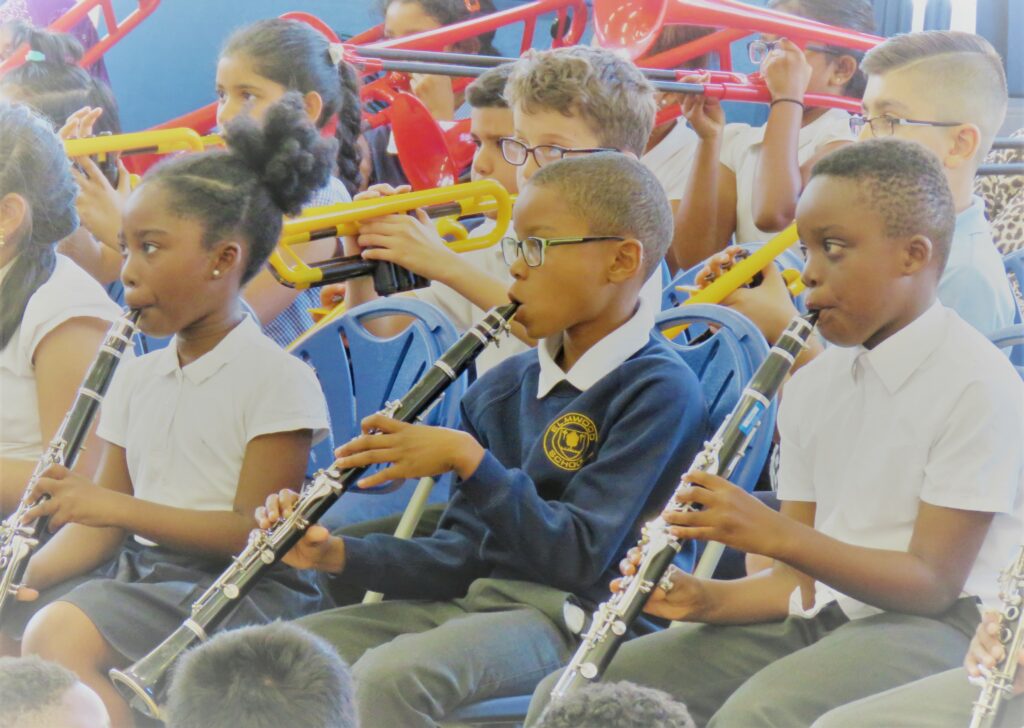
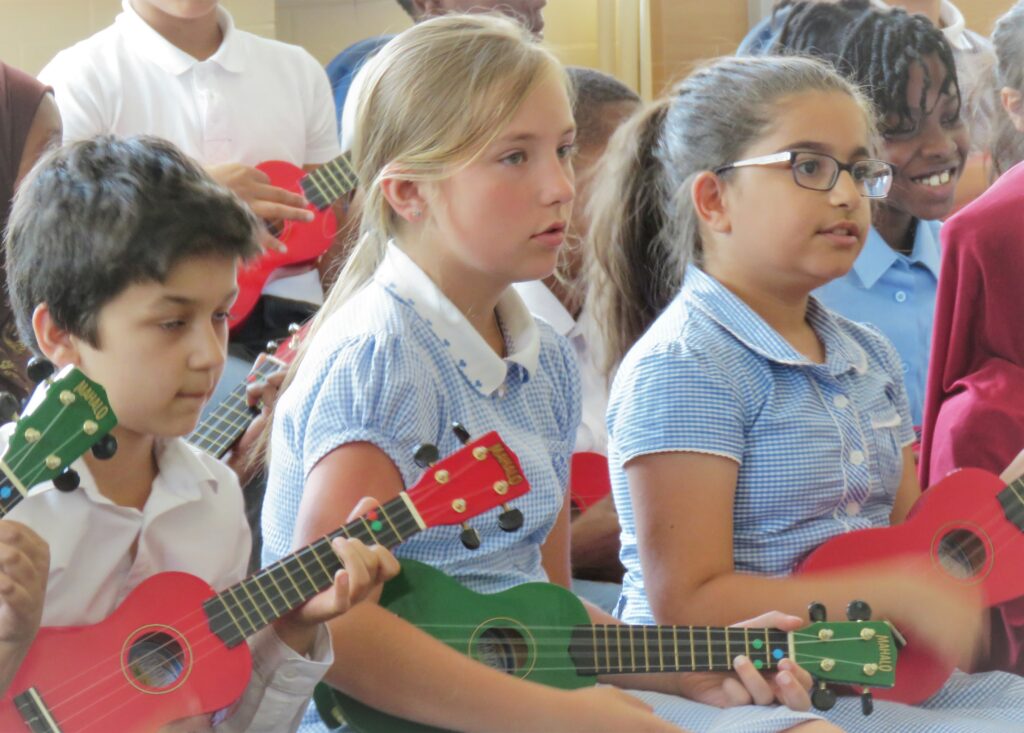
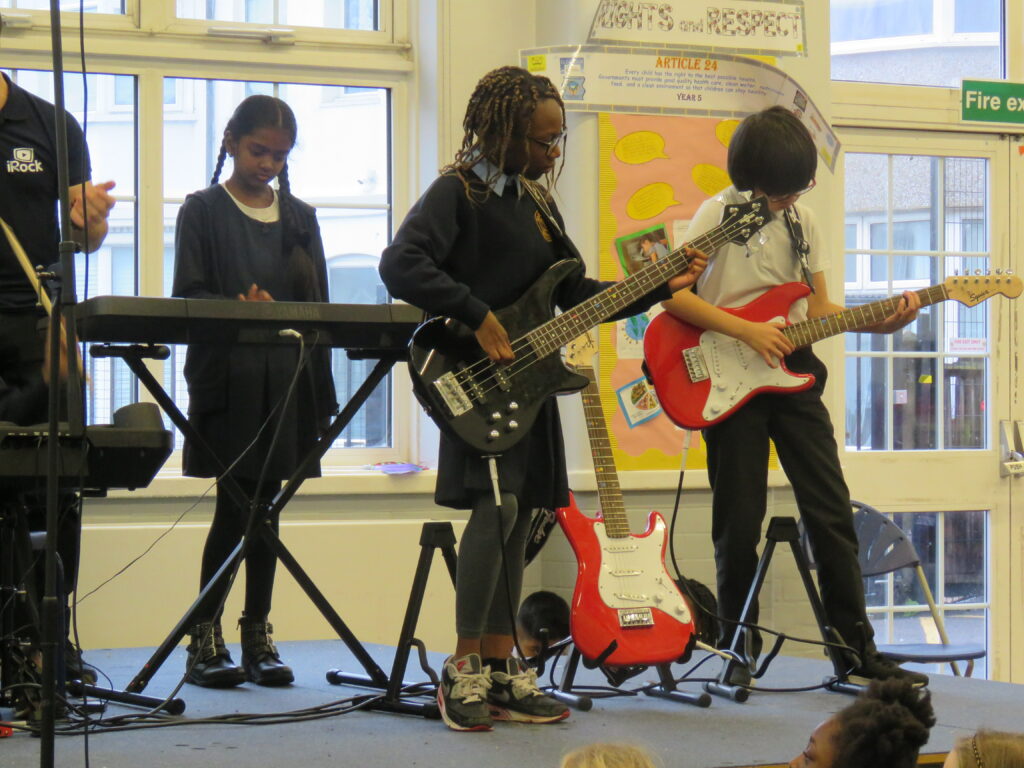

Implementation
Implementation
Music learning is implemented through a tailored curriculum, designed by our specialist music teacher with some use of units and resources from the ‘Sing Up’ Scheme of work. Each year group builds on the learning from prior year groups ensuring a depth of understanding and progression of skills across the following musical strands of learning:
- Listening and understanding (inc. aural skills, knowledge of musical history and culture and knowledge of the interrelated dimensions of music
- Performing (inc. developing singing and instrumental skills, and performing live music using musical technology)
- Notation (inc. graphic notation, note names, chord symbols, tablature and standard western stave notation
- Creating (inc. improvising, composing, and creating, recording and manipulating sounds using music technology)
Every class at Elmwood receives a 45 minute weekly lesson with the musical specialist as well as a weekly singing assembly.
In music lessons, children are given the opportunities to learn and make progression in the strands above, with a strong focus on opportunities to make and respond to music. All year groups use a range of tuned (e.g. glockenspiels) and un-tuned (e.g. drums, tambourines, etc.) classroom percussion instruments in their lessons music lessons
Above and beyond the Model Music Curriculum recommendation that classes in Year 3 and 4 have a whole-class instrumental programme for a minimum of a term, children at Elmwood will have the opportunity to develop their procedural knowledge and performing skills in the following instruments:
Year 3: Ocarinas (for 2 terms)
Year 4: Ukuleles and Recorders (for 1.5 terms on each instrument)
Year 5 and 6: Steel Pan (for one term)
There will be also be opportunities for any pupils who show particular enthusiasm or proficiency in these instruments to develop further in extra-curricular sessions.
Alongside Music lessons, exposure to a range of composers and musical genres is enhanced through ‘Music of the month,’ where pupils listen to and appraise a different style of music each month. This allows pupils to listen to and be critical about the music they listen to already as well as new pieces, both from around the world and the local community.
Peripatetic music lessons offered by the local music hub, Croydon Music and Arts, are regularly signposted to pupils across the school.
Any child is able and welcome to join either Lower School Choir (for Years 3 and 4) or Upper School Choir (Years 5 and 6)
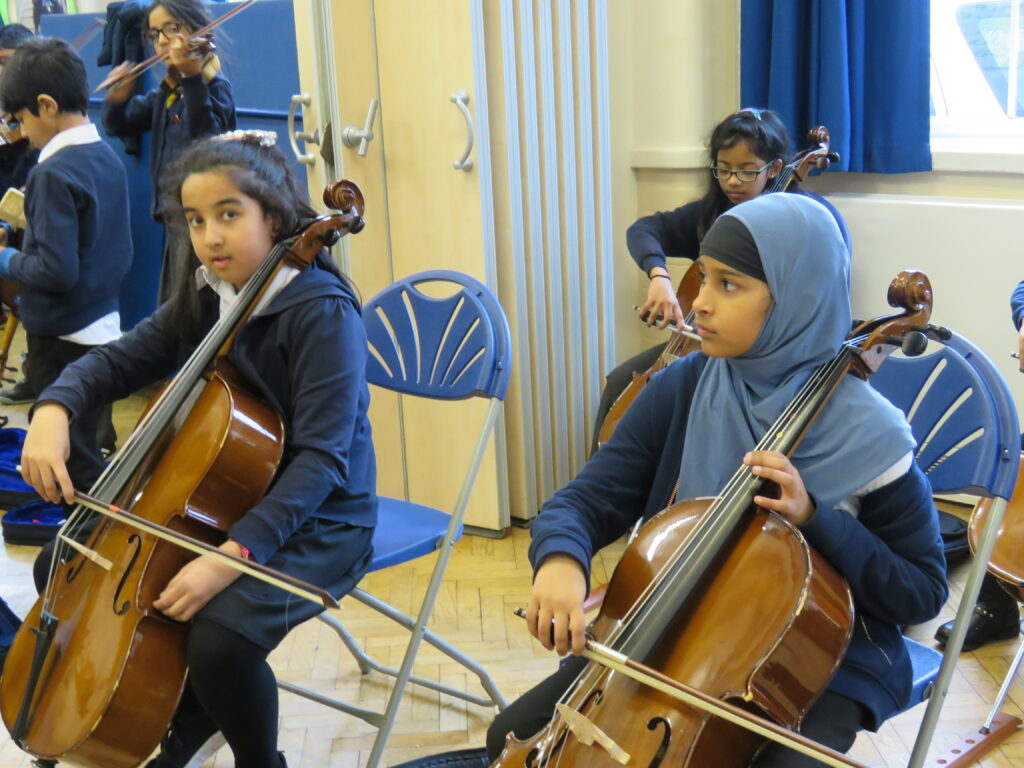
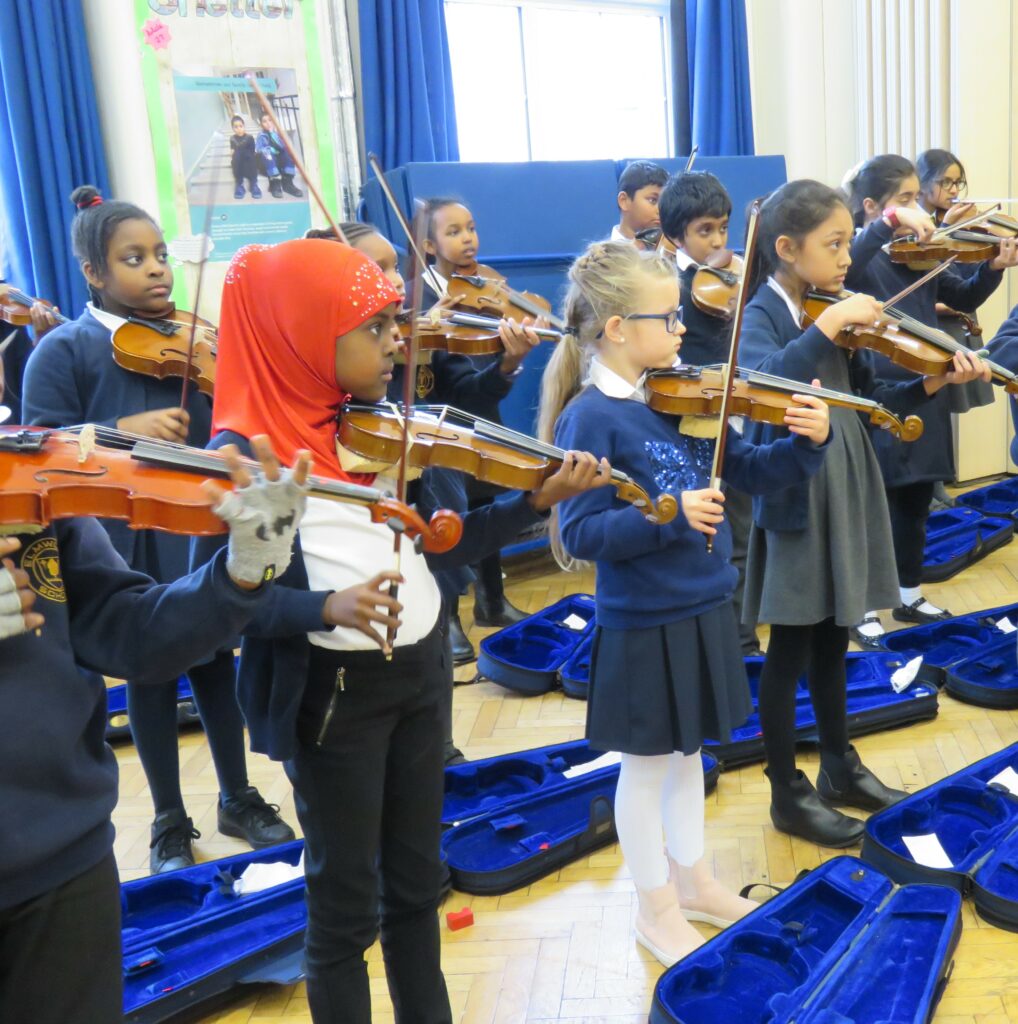
Impact
All pupils should increase their musical skills, knowledge and creativity and all pupils become more confident in performing, creating and listening to music.
By the time pupils leave Elmwood, they will have explored and played a variety of instruments, be able to sing confidently as part of a group, have the knowledge and skills to read and play from different forms of notation and be able to critique different styles of music using musical vocabulary.
We measure the current impact of our curriculum through the following methods:
- AfL during music lessons
- Video, photo, and voice recordings to evidence pupils’ playing, singing, improvising and composing skills
- Music skills and knowledge progression document
- Pupil self-assessment and self-reflection
- Pupil feedback (Pupil voice)
- Learning walks (e.g. SLT)
We also strive for a future impact of our music curriculum where pupils have been aware of the role music can have throughout the rest of their lives in cultural settings, as a hobby or even as a possible future career.
